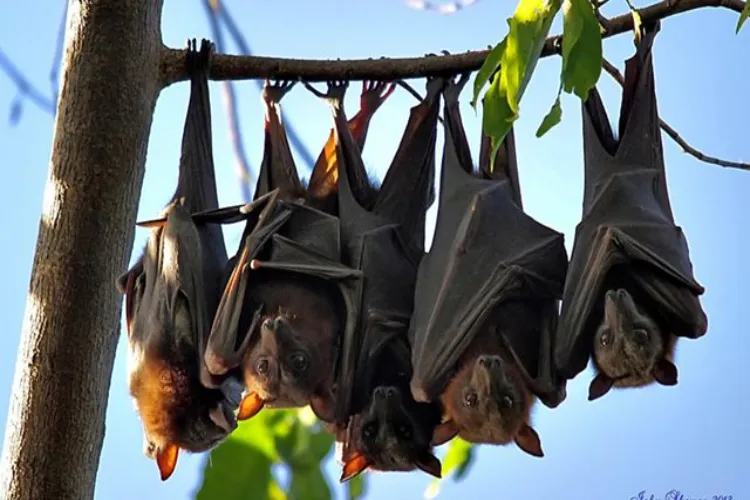
New Delhi
The newly discovered bat coronavirus, HKU5-CoV-2, can spread to humans in a similar manner to Covid-19, raising fresh health concerns, experts warned on Saturday.
HKU5-CoV-2 was identified by a team of Chinese virologists, led by Shi Zhengli, a renowned scientist at the Wuhan Institute of Virology in China. Zhengli, also known as "Batwoman" for her extensive research on coronaviruses, particularly SARS-CoV-2, which caused the deadly Covid-19 pandemic, led the discovery.
This discovery raises concerns about the potential for another zoonotic spillover. HKU5-CoV-2 belongs to the merbecovirus subgenus, which includes the MERS-CoV virus responsible for the Middle East Respiratory Syndrome outbreak.
While Zhengli’s team had previously identified the HKU lineage of coronaviruses in bats from Hong Kong, it lacked the ability to infect human cells. In contrast, HKU5-CoV-2 is capable of binding to human ACE-2 receptors and infecting laboratory models of human lungs and intestines. It can also bind to ACE-2 receptors in other mammals, which suggests it could theoretically spread between animals and humans, explained Rajeev Jayadevan, Chairman of the Kerala State IMA Research Cell.
However, Wuhan researchers have not provided a comparison between HKU5-CoV-2 and SARS-CoV-2 regarding their ability to infect human cells.
Gautam Menon, Dean of Research at Ashoka University, stated that HKU5-CoV-2 does not possess pandemic potential. "From what we know as of now, this is unlikely to be significant. While HKU5-CoV-2 shares similarities with Covid-19 and other coronaviruses, it isn't enough to suggest that it will spread between humans in a way that could cause a pandemic," Menon said.
He also noted that widespread exposure to SARS-CoV-2 could offer immunity against the new bat coronavirus. "The fact that most people have been exposed to Covid-19 should also provide some protection against viruses like HKU5-CoV-2," Menon added, urging continued research to prepare for any future threats.
ALSO READ: What should a Muslim do during natural calamity
Jayadevan stressed the importance of studying viruses that naturally occur in bats, but also highlighted the risks of conducting such research in laboratories. "If proper biosecurity measures are not followed, there is a risk of accidental spillover to humans. Many labs studying high-risk pathogens operate under strict Biosafety Level 4 (BSL-4) protocols," he explained.
He also emphasised reducing human-bat interactions to mitigate the risk of spillovers. "Viruses recombine with each other, potentially creating more dangerous versions. This study is a reminder that viruses from other animals remain a threat for future pandemics, and reducing bat-human interactions is crucial to lowering the risk," Jayadevan said.
